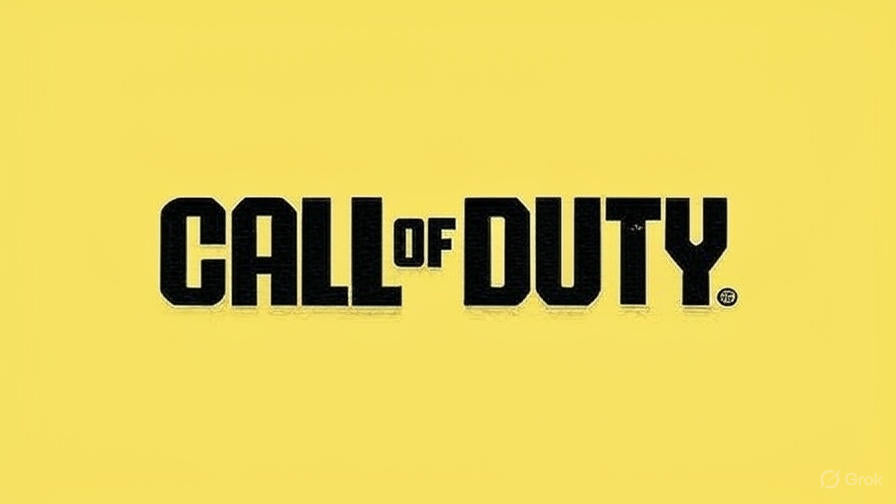5 Key Insights from Call of Duty Sales: Xbox vs PlayStation [Analysis]
Introduction
On October 3, 2025, @charlieINTEL shared a revealing post about Call of Duty: Black Ops 6 sales. According to the post, 82% of sales occurred on PlayStation platforms, highlighting a significant disparity in revenue between PlayStation and Xbox. The post ignited discussion across X (formerly Twitter) about Microsoft's Game Pass strategy and its broader impact on the gaming industry. This article breaks down the insights, implications, and reactions surrounding this trend.
82% of Call of Duty: Black Ops 6 sales were on PlayStation platforms because of Call of Duty being on Game Pass on Xbox and PC, per analytical data
— CharlieIntel (@charlieINTEL) October 3, 2025
Xbox lost a lot of revenue by putting Call of Duty day one on Game Pass. pic.twitter.com/5ASSMbP8vR
1. The Post in Focus
The post included images representing two key elements:
- Call of Duty logo — iconic branding representing Activision’s popular first-person shooter franchise.
- PlayStation logo — symbolizing Sony's platform dominance.
The accompanying text stated: "82% of Call of Duty: Black Ops 6 sales were on PlayStation platforms because of Call of Duty being on Game Pass on Xbox and PC. Xbox lost a lot of revenue by putting Call of Duty day one on Game Pass."
2. Game Pass Strategy and Revenue Impact
Microsoft's Game Pass subscription model allows users to access Call of Duty titles on day one without purchasing them outright. While this increases Game Pass adoption, it appears to have cannibalized Xbox and PC sales, leading to an estimated $300 million revenue loss in 2024.
This trade-off explains the 50% price increase of Xbox Game Pass Ultimate, raising it to $29.99 per month starting November 4, 2025.
3. PlayStation’s Advantage
PlayStation users, who must purchase games outright, accounted for the majority of Black Ops 6 revenue. This emphasizes:
- Stronger purchase loyalty among PlayStation players.
- Limited exposure to subscription models like Game Pass on PlayStation, maintaining traditional sales channels.
The 82% figure suggests that PlayStation’s revenue model continues to thrive, even as Xbox experiments with subscription-first strategies.
4. Community Reactions
The X community showcased mixed opinions:
- Criticism: Users questioned Xbox’s financial logic, predicting subscription fatigue.
- Humor and Memes: Posts highlighting PlayStation’s dominance reflected both amusement and concern about Xbox’s future.
- Improvement Suggestions: Calls to remove day-one releases from Game Pass indicate a demand for balanced strategies.
- PlayStation Celebration: Comments celebrating PlayStation’s apparent advantage underline gamers’ awareness of platform performance.
5. Broader Industry Implications
The scenario aligns with concerns surrounding Microsoft’s $69 billion acquisition of Activision Blizzard:
- Game Pass price hikes contradict earlier regulatory assurances.
- Revenue losses on Xbox highlight the risk of prioritizing subscription models over direct sales.
- Regulatory critics have warned about potential negative effects on gamers and developers.
The scenario underscores a crucial question: can subscription-based models sustain profitability without undermining traditional sales?
Conclusion
The post by @charlieINTEL captures a pivotal moment in the gaming industry. Microsoft’s Game Pass approach has altered revenue dynamics, benefiting PlayStation through traditional purchases while challenging Xbox’s profitability. As subscription models gain traction, gamers, developers, and investors must navigate a delicate balance between accessibility and revenue sustainability.
This case serves as a wake-up call for the gaming ecosystem, emphasizing that strategies meant to attract users may inadvertently create financial trade-offs.
FAQs
Q1: Why did PlayStation account for 82% of Black Ops 6 sales?
A1: PlayStation users must purchase games outright, unlike Xbox Game Pass subscribers who access the game without buying, leading to higher PlayStation revenue.
Q2: What is Xbox Game Pass, and how does it affect sales?
A2: Game Pass is a subscription service that provides day-one access to games. While increasing user engagement, it can reduce direct game purchases, impacting revenue.
Q3: Why did Xbox increase Game Pass prices by 50%?
A3: The price hike offsets revenue losses from reduced sales of titles like Call of Duty: Black Ops 6, while also addressing post-acquisition market pressures.
Q4: How did the community react to this post?
A4: Reactions ranged from criticism of Xbox’s strategy to humorous memes celebrating PlayStation’s advantage. Suggestions for a balanced approach were also discussed.
Q5: What does this mean for the future of gaming subscriptions?
A5: Subscription models like Game Pass offer accessibility but may threaten traditional sales. The industry must find a sustainable approach to benefit both gamers and developers.


0 comments